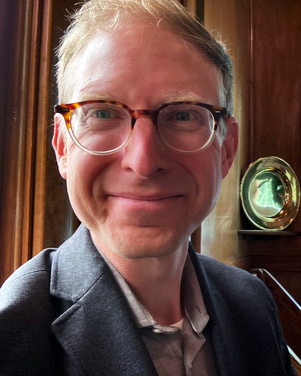Earlier this spring, I found myself amongst the trees down the hill from my home in unceded Sinixt territory. I held a rake and a set of lopping shears, ready to trim low branches and clean the forest floor in preparation for the summer months. We live in Rossland, an interface community surrounded by trees. While a beautiful part of the world, it is also a place where the threat of fire increases with each passing year.
A praise chorus from my childhood comes to mind, but not in a comforting way: “It only takes a spark to get a fire going…”
My family and I moved into this house nearly two years ago, having come “temporarily” to the Kootenays at the beginning of the pandemic. After several months of squatting in my in-laws’ basement, we sold our small apartment in our East Vancouver co-housing community, making the move official.
The experience has been both life-giving and disorienting.
I am grateful to be here. And yet, there are still days I don’t feel as though I’ve fully arrived. The pandemic and its rapidly changing context sent each of us into a liminal space. Today we find ourselves somewhere between the world we knew and the one that God is creating with a rushing wind and tongues of fire.
I often long to return to that place I once called home. And yet, if I were to return, it wouldn’t be to the world my family and I left behind when we fled Vancouver on the morning of March 23, 2020. People have changed. Relationships have changed. The city has changed. The world has been forever changed by a highly transmissible airborne virus that we continue to live alongside, and that continues to do great harm. There is simply no going back to life before the pandemic. That world is gone.
Spending time in the forest, I am reminded of the church. My mind turns to the ways in which the church has grown and evolved over centuries. Over these many years, some Christian communities have flourished and others have come to their natural end. Branches and leaves and trunks have returned to the earth, now able to provide nutrition to the soil through their death. Yet other members of the forest community remain to provide shelter and oxygen for the duration of their lifetime. Come what may, the forest remains, even if changed.
The church, like the forest, is a living organism. The church grows and evolves. We shift and change. We face threat and decline. Unlike city trees—disconnected and autonomous—we do not face these circumstances on our own. Indeed, we are connected by a vast root system, built for sharing, waiting as we are on God and God’s gift of life-giving sun, rain, and yes, sometimes fire.
The future is uncertain. God’s future always is. Reminded of the disciples at Pentecost, I wonder how many of those first members of the Jesus movement were longing (as we sometimes long) for a past no longer available to them. Despite all that they had seen and experienced at Easter, I wonder how many of them remained stuck in ways of being, organizing, and participating in God’s dream for the world.
At Pentecost, gathered together in one place, I am struck by the surprise of it all. What comes next is unexpected. What comes next is breathtaking. What comes next looks nothing like they planned for. Even so, the disciples recognize God’s gift when it comes and sweeps them up in the wind and fire of Holy Spirit.
All too often I find myself hoping that God will show up how I expect, in ways that affirm my own comfort. And yet the Spirit moves in mysterious ways. In these Pentecost days, may we be open and flexible. Above all, may we open ourselves to the Spirit, God’s Holy Spirit, who is about to do a new
thing.

